| Article ID | Journal | Published Year | Pages | File Type |
|---|---|---|---|---|
| 912155 | Journal of Neurolinguistics | 2006 | 24 Pages |
In ERP studies of adults, semantic incongruities elicit a late negative response called the N400. Recently it was demonstrated that the amplitude of the N400 is sensitive to the organization of semantic categories in memory. The present study sought to investigate whether a similar incongruity response can be identified in children in their second year of life and whether this response is sensitive to category relationships at this early stage of lexical acquisition.In a picture–word mismatch paradigm with basic-level words, 20-month-olds displayed an N400-like incongruity effect. The incongruity response was earlier and larger for between-category violations than for within-category violations when each of the two violation types was compared to a control condition. This suggests that the N400 component is already sensitive to the semantic organization of the mental lexicon in toddlers, and may serve as a useful tool in the study of phenomena in lexical development such as overextension.Some behavioral studies have suggested that toddler's overextensions of basic-level words result from oversized conceptual categories. This is at odds with the present finding of incongruity responses even to within-category violations.
